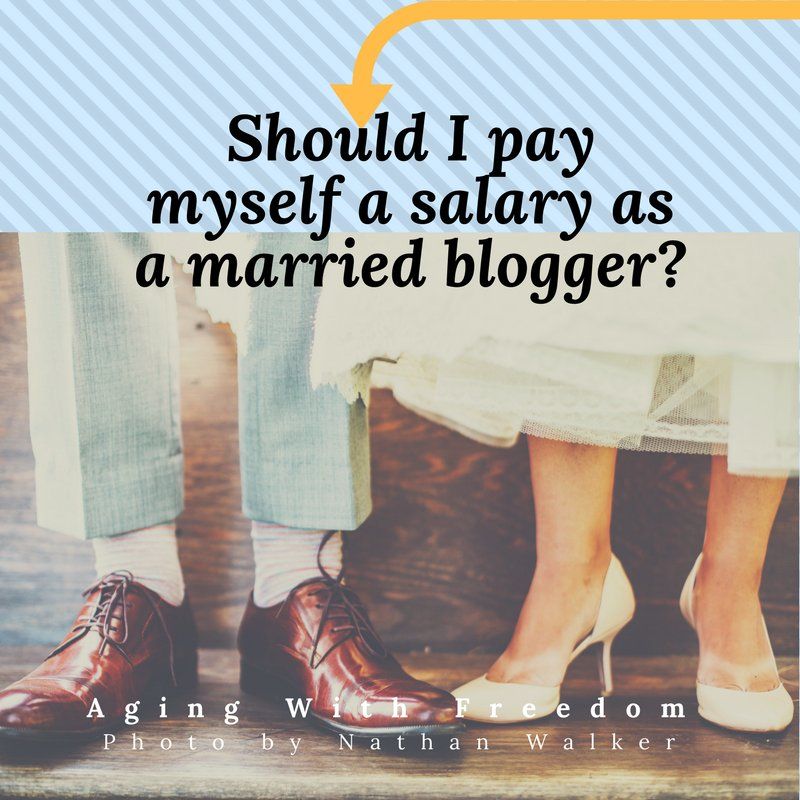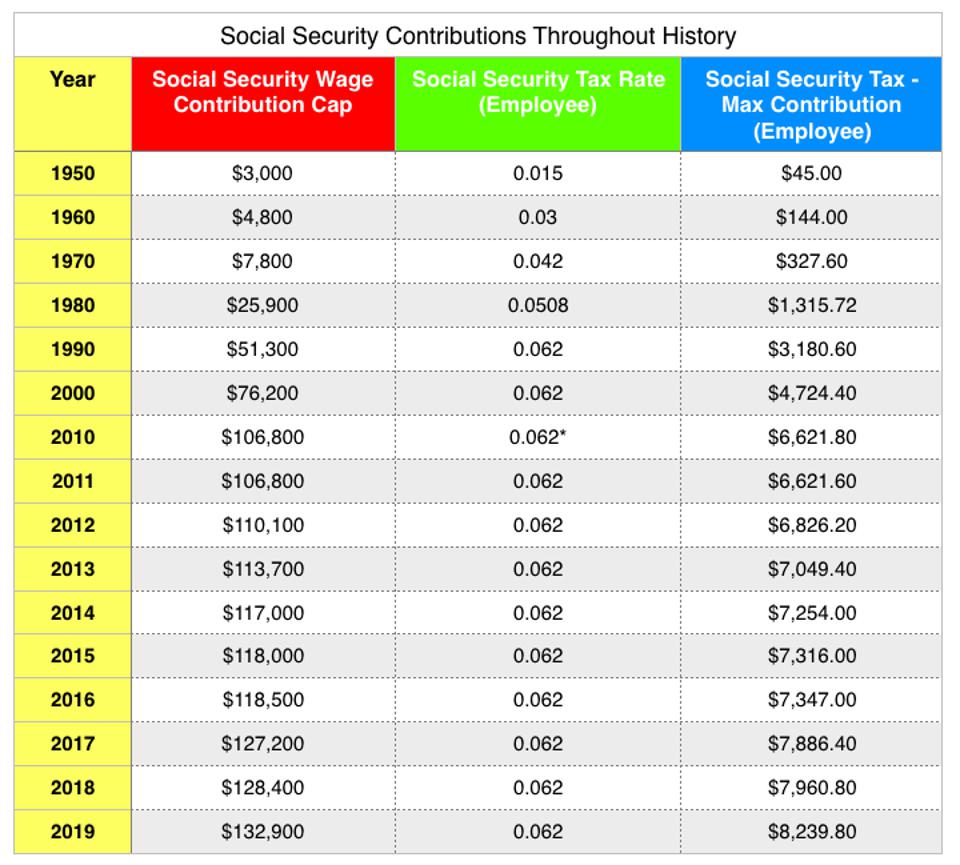Plan Your Business Exit Strategy
For many business owners, the business is their largest asset and the source of the majority of retirement funding. Yet self employed business owners, knowing full well that they will have to sell their business at some point, commonly neglect to do any planning for this event until the last minute.
Talk about throwing caution to the wind!
Even if you arent planning to sell your business for many years, that doesnt preclude you from doing the necessary prep work. Examples of things that business owners should be doing to prepare for the sale of a business would include:
- Identifying internal and external successors
- Getting valuations for all tangible and intangible assets
- Getting an independent third party to conduct a valuation of the enterprise
Looking out far ahead will give you the runway to handle any issues way in advance. This type of planning should be ongoing. This is the level of consistent diligence that is necessary given the magnitude of this event.
Please Answer A Few Questions To Help Us Determine Your Eligibility
If you are self-employed and you claim early retirement benefits from Social Security , your benefits may be reduced if you’re performing “substantial services,” even if you’re not making income over the allowed limits.
The reason Social Security has a special rule for small business owners is that some people with their own businesses try to get around the income limit by continuing to work and paying a relative instead of themselves, or by continuing to run the business but being paid only for reduced work time to stay under the limit.
Change In How You Report Earnings
Social Security will request earnings estimates from individuals who are receiving early retirement and receive substantial self-employment income or income that varies widely from month to month. Toward the end of each year, Social Security sends those people a form asking for an earnings estimate for the following year. The information you submit will be used to calculate your retirement benefits for the first months of the following year, until they are adjusted with your actual self-employment tax information.
Once you reach full retirement age, you will no longer need to do this since there is no Social Security limit on how much a person can work or earn after reaching full retirement age.
This article was based on an excerpt from Social Security, Medicare & Government Pensions, by Joseph Matthews .
Read Also: Can You Work On Ssi Disability
Does Ssi Pay For Self Employment
The SSI program treats both wage employment and self-employment very favorably. Its almost impossible to earn wages or have self-employment income and NOT be better off for it in the SSI program. This is because once countable net earnings from self-employment is determined, Social Security only reduces your SSI check by about $1 for every $2 your business generated in countable NESE. Your SSI check is not reduced dollar-for-dollar by self-employment income which means you will have more money at the end of the month than you had when all you got was an SSI payment. It really pays to own a profitable small business in the SSI program.
What Is A Pass For Social Security

There is a particular Social Security work incentive known as a Plan to Achieve Self-Support, or PASS, which is a wonderful way for some beneficiaries to finance business start-up. The PASS work incentive allows you to set aside income or resources, which would otherwise cause either ineligibility for Supplemental Security Income or a reduction in SSI cash payments, for use in achieving an occupational goal including self-employment. Basically, you have to determine a specific occupational goal, must determine what items or services you need to achieve that goal, and must complete the required PASS form describing how you will spend PASS funds on the items or services needed to meet your goal. Social Security will disregard the income or resources set aside in the PASS when they determine SSI eligibility and when calculating the amount of the SSI payment each month. This allows you to either establish SSI eligibility or to keep more of the SSI payment. By using a PASS, beneficiaries can actually leverage their own Social Security benefit to save for things they need or to pay for the start-up expenses needed to get a business off the ground.
Don’t Miss: Best Dogs For Veterans With Ptsd
Snts And Able Accounts
SNTs and ABLE accounts can work together well to further the economic independence of self-employed individuals with disabilities, while protecting their means-tested benefits. Each has its own array of regulations which must be followed in order to avoid negative consequences.
For instance, ABLE accounts can be managed by the beneficiary, but have contribution limitsâ$15,000 annually as of 2019. SNTs have no such limits but distributions are made at the sole discretion of a trustee. If SNT distributions are used for food or shelter, SSI payments will decrease, which is not the case with ABLE expenditures.
As an example, in New Hampshire, someone might transfer funds from their MEAD earned income account into an SNT. Then, as needed, a trustee could transfer funds from their first party SNT to an ABLE account up to its $15,000 annual limit. In this way, they could optimize their control of earnings while maintaining important government benefits.
In summary, thereâs a lot to consider before going the entrepreneurial route. Be sure to consult both a special needs attorney and CPA before making big decisions. But if itâs a fit for you or a loved one, it can deliver profit, a sense of fulfillment and a flexible lifestyle.
Does Social Security Count Gross Income
For people who are self-employed, Social Security doesnt count gross income the business generated, but rather net earnings from self-employment . This is completely different from the way Social Security treats earned income from wage employment in which Social Security counts gross wages. The terms gross and net, and what they mean for someone who is self-employed and receiving Social Security disability benefits, can be confusing. Here is a brief explanation of the various terms:
You May Like: When Do Disability Checks Come Out
Title Ii Disability Insurance
A Title II beneficiary will use a Trial Work month if self-employment activity meets the definition of a âserviceâ month: net earnings for the activity equals or exceeds the current yearâs Trial Work Period limit , or, the beneficiary reports spending at least 80 hours engaged in the trade or business during the month. SSA must rely on the individualâs own record of time spent. Service hours are defined only by the period of time the beneficiary spends providing a service to a client or producing a product. The time spent during the âstartupâ period is not included in the Trial Work Period: planning, purchasing or leasing space, equipment, applying for licenses or permits, etc.
To determine the net profit for a particular month, the SSA will compare the business records, such as profit and loss statements, with the individualâs income tax return. Generally, the SSA will look at each month individually however it may be necessary to average the earnings over a period of work if it is not possible to establish monthly net earnings.
Once the Trial Work Period has been completed, the SSA will review the self-employment activity to determine if the work meets the criteria established for Substantial Gainful Activity.
There are three tests that can be applied during the review:
What Happens When Youre Self
When you’re self-employed, you’re considered both the employee and the employer. This means it’s your responsibility to withhold Social Security from your earnings, contributing the employer’s portion of Social Security as well as the individual’s portion.
Instead of withholding Social Security taxes from each paycheckmany self-employed people don’t get regular paychecksyou pay all the Social Security taxes on your earnings when you file your annual federal income tax return. This amounts to both your contribution and your business’s contribution.
IRS Schedule SE: Self-Employment Tax is where you report your business’s net profit or loss as calculated on Schedule C. The federal government uses this information to calculate the Social Security benefits you’ll be entitled to later on down the road.
Self-employment tax consists of both the employee and employer portion of Social Security and the employee and employer portion of Medicare , which makes the total self-employment tax rate 15.3%.
It may seem like you’re getting the short end of the stick because you have to pay both the employee and the employer portion of the tax, but that isn’t necessarily true.
If you are self-employed and earned $400 or less, you wont owe Social Security taxes.
Also Check: How Long Does It Take To Get Disability Back Pay
What Test Does Social Security Use To Determine If You Are Self Employed
The first test Social Security will use is the “Significant Services and Income” test. If this test doesn’t show that your self-employment is SGA, Social Security will use the “Comparability” and “Worth of Work” tests. If Social Security finds your self-employment is SGA, you will be denied disability benefits.
Qualifying For Social Security Benefits
Anyone born in 1929 or later needs 40 Social Security work credits, the equivalent of 10 years of work, to qualify for Social Security benefits. You earn one credit for every quarter that you earn at least $1,510 in 2022 . The number changes annually.
Even if your business isnt particularly successful, or you only work part-time or occasionally, its not difficult to earn the Social Security credits you need. Even if your earnings fall below this threshold or your business has a loss, there are some alternative ways to earn Social Security credits. These optional methods may increase the amount of self-employment tax you owe, but theyll help you get the work credits you need.
Your eventual benefit payments do take your earnings into account. If you never earned much money from a lifetime of self-employment, dont count on getting a large Social Security check in retirement. If you started claiming benefits this year, for example, and your average monthly earnings worked out to just $800, your monthly Social Security retirement benefit would be $720assuming youre at full retirement age. Thats not much, but if you managed to get by on an average of $800 a month during your working years, you could probably work with a monthly benefit payment of $720 in retirement.
Read Also: Can A Person With Diabetes Get Disability
What Is The Irs Schedule Se
IRS Schedule SE: Self-Employment Tax is where you report your business’s net profit or loss as calculated on Schedule C. 3 The federal government uses this information to calculate the Social Security benefits you’ll be entitled to later on down the road. Self-employment tax consists of both the employee and employer portion of Social Security and the employee and employer portion of Medicare , which makes the total self-employment tax rate 15.3%. 1
Should You Apply For Medicare If Youre Still Working

Medicares initial enrollment period starts three months before the month you turn 65. It includes the month you hit full retirement and ends three months after. This totals to a potential seven-month enrollment time frame.
Generally, you are advised to enroll during this period to avoid future financial penalties for Medicare Part B. On the other hand, there usually isnt a penalty for signing up for Medicare Part A in a different enrollment period because its usually free.
You need to work for an employer that has 20 or more employees to drop this plan without being penalized. If youre self-employed and dont have a subsidized health care plan under an employer then you should keep your plan to avoid future fines.
An exception to this rule is if you want to continue contributing to a Health Savings Account fund once you become a new Medicare beneficiary, youre not allowed to put money into this fund anymore.
Recommended Reading: Can You Collect Unemployment If You File For Disability
How Much Does Self Employed Pay Social Security
pay a 6.2 percent Social Security tax on up to $142,800 of your earnings and a 1.45 percent Medicare tax on all earnings. If youre self-employed, you pay the combined employee and employer amount, which is a 12.4 percent Social Security tax on up to $142,800 of your net earnings and a 2.9 percent Medicare tax on your entire net earnings.
How Minimizing Taxes Minimizes Benefits
Besides the Social Security tax deductions you can take when you’re self-employed, many business expenses can reduce your tax liability.
“Business expenses reduce your overall tax, which ultimately lowers your Social Security taxes. Business tax deductions are a way of minimizing self-employment tax and Social Security taxes,” says Carlos Dias Jr., founder and managing partner of Dias Wealth LLC in Lake Mary, FL.
But keep in mind that this can work against you regarding Social Security benefit calculations, which are based in part on your taxable earnings. Here’s why. The more deductions you have, the lower your Schedule C income. Lowering your Schedule C income is a good way to reduce how much federal, state, and local income tax you owe. However, this lower amount becomes part of your Social Security earnings history and means you may receive lower benefits in retirement than if you didn’t take those deductions.
Also Check: Do Veterans Pay Property Taxes In Florida
Who Must Pay Self
You must pay self-employment tax and file Schedule SE if either of the following applies.
- Your net earnings from self-employment were $400 or more.
- You had church employee income of $108.28 or more.
Generally, your net earnings from self-employment are subject to self-employment tax. If you are self-employed as a sole proprietor or independent contractor, you generally use Schedule C to figure net earnings from self-employment.
If you have earnings subject to self-employment tax, use Schedule SE to figure your net earnings from self-employment. Before you figure your net earnings, you generally need to figure your total earnings subject to self-employment tax.
Note: The self-employment tax rules apply no matter how old you are and even if you are already receiving Social Security or Medicare.
Advisers Often Ask Whether There’s A Way To Minimize Payroll Taxes For Small
I often get questions from financial advisers who work with self-employed individuals asking if theres a way to minimize payroll taxes, which small-business owners pay at double the rate of employees, while maximizing future Social Security retirement benefits.
Kim Seymour, a financial planner with Family Wealth Planning Group in Naples, Florida, said she has a client whos 63 years old and working in the family business. The client receives a salary of about $40,000 a year.
The clients current estimated Social Security benefit is about $1,800 per month at her full retirement age of 66 and 8 months and about $2,400 at the maximum age of 70. Her benefit is larger than any amount she would receive as a spouse while her husband is alive but less than the monthly survivor benefit she would receive if he died first.
Would it be beneficial to increase her salary between now and her full retirement age or beyond to increase her future Social Security benefits? Kim asked me in an email. Is there a way I can calculate the increased benefit per $1,000 of additional salary taking into account the additional payroll taxes paid by her and the business?
Oh, if it were only that simple.
Above the $147,000 threshold, the Social Security tax component goes away but the 2.9% Medicare tax continues before rising to 3.8% at higher income levels .
Read Also: Help For Families Of Veterans With Ptsd
Does Social Security Offer Work Incentives
Yes , as we mentioned earlier, the Social Security disability programs include numerous special provisions for beneficiaries who are employed or self-employed which are intended to encourage work and to ease the transition from dependence on benefits to greater self-sufficiency. Social Security refers to these special rules as work incentives. The work incentives that apply to the SSI program are the same regardless of whether you are in wage employment or self-employment. We have provided a brief description of the SSI work incentives below. You can also find information about these work incentives in a useful Social Security publication called the Red Book. You can find the most current version of this publication on Social Securitys website .
What Is The First Test For Self Employment
The first test Social Security will use is the “Significant Services and Income” test . If this test doesn’t show that your self-employment is SGA, Social Security will use the “Comparability” and “Worth of Work” tests. If Social Security finds your self-employment is SGA, you will be denied disability benefits.
Don’t Miss: Is Hyperhidrosis Classed As A Disability
What Income Reduces Social Security Benefits
If you are younger than full retirement age and earn more than the yearly earnings limit, we may reduce your benefit amount. If you are under full retirement age for the entire year, we deduct $1 from your benefit payments for every $2 you earn above the annual limit. For 2022, that limit is $19,560.
What Is Self Employment

Self-employment includes freelance work, contract work, or any other work you do for a business you own. Instead, if you are self-employed, Social Security will assess whether your work is substantial gainful activity by using either the “Countable Income Test” or the “Three Tests.”. Which test Social Security uses depends on whether your initial …
Also Check: Can Someone With Crohn’s Disease Get Disability
